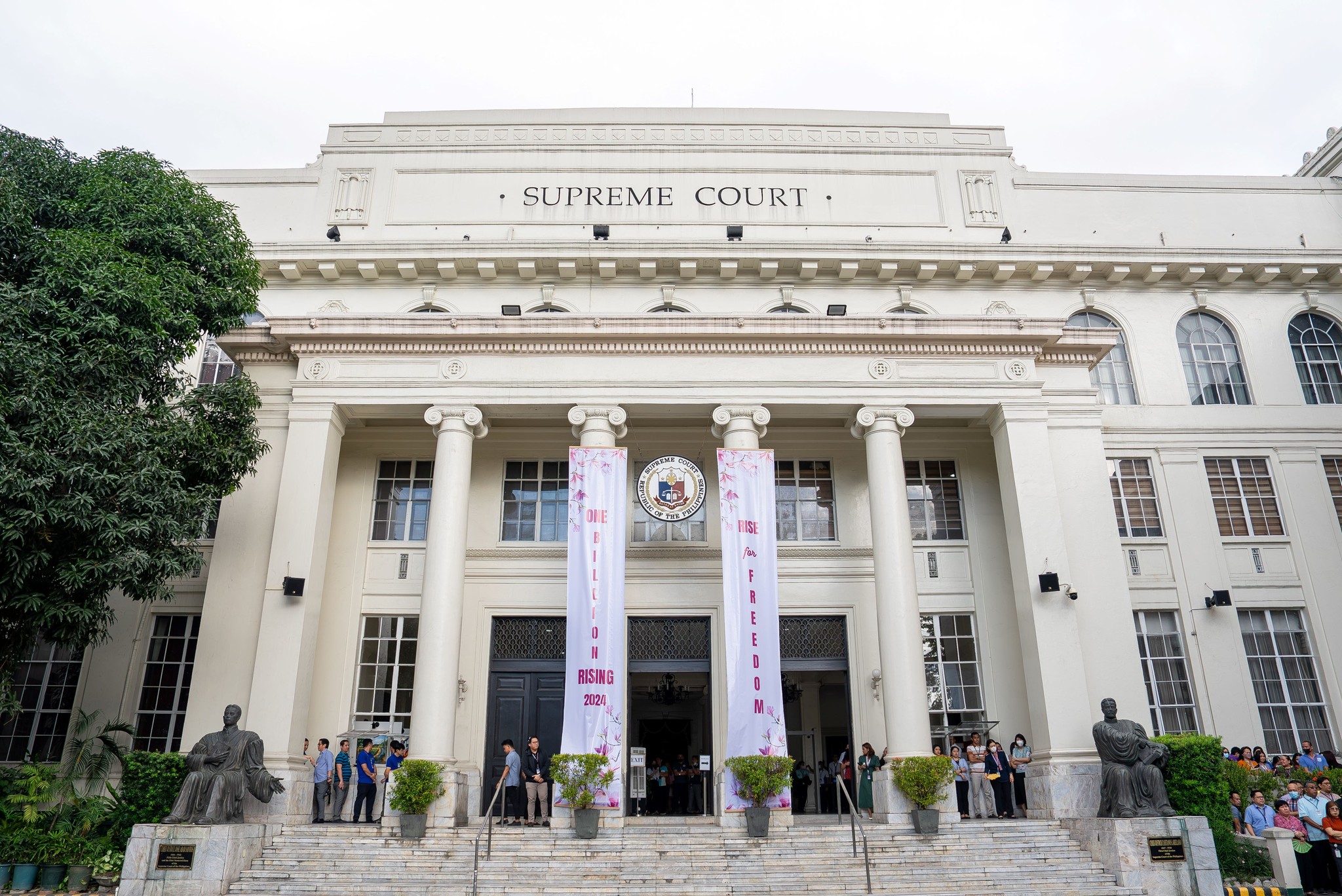
Official Facebook page of the Supreme Court PH
MANILA, Philippines — The Supreme Court has ordered a municipal trial court judge in Calamba City, Laguna, dismissed and disbarred for falsifying public documents in order to continue receiving the salaries of her contractual driver who had already resigned.
In a 42-page per curiam decision, the high court en banc found Vice Executive Judge and presiding Judge Sharon Alamada-Magayanes guilty of falsification of official documents, serious dishonesty and gross misconduct.
READ: SC: No need for direct evidence to sack corrupt judges
She was also cited for the commission of crimes involving moral turpitude and violations of the New Code of Judicial Conduct.
Her corespondents, court clerk Rachel Worwor-Miguel and court stenographer Beverly de Jesus, were likewise found guilty of falsification and serious dishonesty for falsifying the payroll registers by signing the document.
Wowor-Miguel was fined P140,000 for falsifying the payroll registers for seven periods while De Jesus was penalized P20,000 for falsifying the payroll register for one period.
According to the court, Alamada confessed that she signed the payroll registers of the Calamba City government for her contractual driver and certified that he rendered service for the period stated in the document although he had already resigned.
The high tribunal also noted that the ATM card of the driver was with the judge and that from September 2020 until July 2021, his salaries were still being credited to the ATM card and “consistently withdrawn upon the instructions of Judge Alamada.”
In dismissing the judge from service, the court ruled that her acts showed her moral depravity and she “fell short of the standards of a magistrate of the law.”
“Judges are repeatedly reminded to be irreproachable in conduct and to be free from any appearance of impropriety,” it said in a statement on Tuesday.
The high tribunal further ruled that Alamada’s false certifications and misappropriation of her staff’s salaries also constituted gross misconduct and serious dishonesty—both considered serious offenses under Canon VI, Section 33 of the Code of Professional Responsibility and Accountability.
“Judge Alamada’s acts did not only affect the image of the judiciary, but also put her moral character in serious doubt and rendered her unfit to continue in the practice of law,” it said.
The court added that it further considered the multiple offenses committed by the judicial officer, in addition to her “lack of remorse” and the severity of her offenses in imposing the penalty of disbarment.

